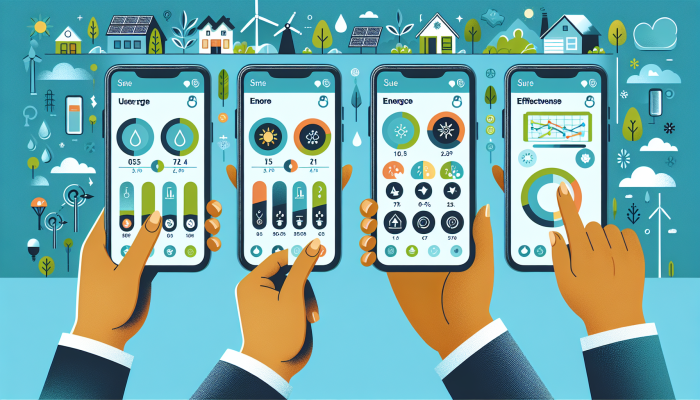
Saving energy is a crucial task in the current context of energy crisis and climate change.
We have a number of innovative solutions at our disposal that can make a significant contribution to energy savings.

The implementation of renewable energy technologiessolar and wind energy is an innovative solution for saving energy.
These technologies not only reduce dependence on fossil fuels, but are also more efficient and sustainable.
LED lighting is another promising energy-saving solution. LED bulbs are more efficient than traditional bulbs, consuming less energy and offering a longer lifespan.
Energy management systems, such as EnergyHub e Ecobeeare technological tools designed to optimize energy use in homes and businesses.
These systems make it possible to remotely control energy-consuming devices, schedule operations for peak and off-peak times, and monitor energy consumption in real time.
Electric vehicles are also innovative solutions. As well as being more efficient, they don't emit greenhouse gases.
This means that they not only help save energy, but also protect the environment.
O sustainable development has become a critical point in global discussions, and it is no different when it comes to the issue of energy saving which has been gaining prominence.
This article looks at the benefits and challenges of implementing energy savings.
It involves reducing energy use while maintaining the same levels of activity and comfort.
This is done by using energy efficiently, opting for renewable energy sources and adopting energy-conscious practices.
Despite its undeniable benefits, energy saving also presents some challenges for implementation. Some of these include:
Research suggests that it not only has significant potential to benefit the environment, but can also bring economic benefits.
The challenge will be to overcome the obstacles to implementation, but the benefits of a more sustainable future far outweigh the challenges.
It has many implications, both in environmental and social terms.
When we use energy more efficiently, we are playing a crucial role in protecting our planet and thus increasing the quality of life for ourselves and future generations.
It helps to reduce greenhouse gas emissions that contribute to climate change.
For example:
When we use less electricity in our homes or offices, we reduce the demand for energy from power plants
Therefore, resulting in less burning of fossil fuels and, consequently, less CO2 emissions.
It also minimizes environmental pollution.
Power generation often results in the release of harmful air pollutants that can lead to health problems as well as damaging ecosystems.
By saving energy, we are protecting public health and biodiversity.
From a social point of view, it can lead to a lower cost of living. Energy is often a large part of household expenses.
Therefore, energy-saving practices, such as the use of energy-efficient appliances, can help families save on their energy bills.
In addition, the need to save energy has the potential to stimulate innovation and create jobs.
Developing technologies and practices to improve energy efficiency can open up new job opportunities in fields such as engineering, manufacturing and construction.
Check out some of the real efforts being made to save energy at the link below:
Visit Energy Star e International Energy Agency for more information on energy saving.
For more details on the solutions highlighted, visit their respective websites: EnergyHub, Ecobee.